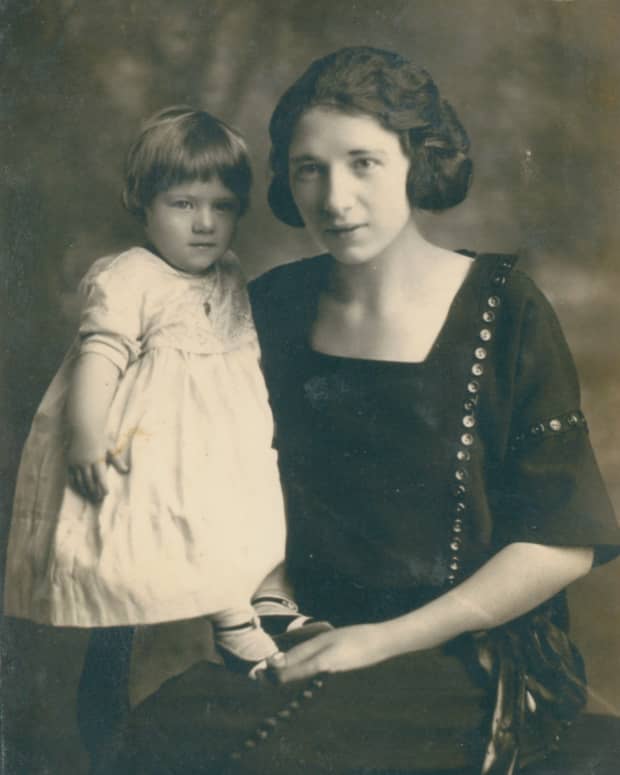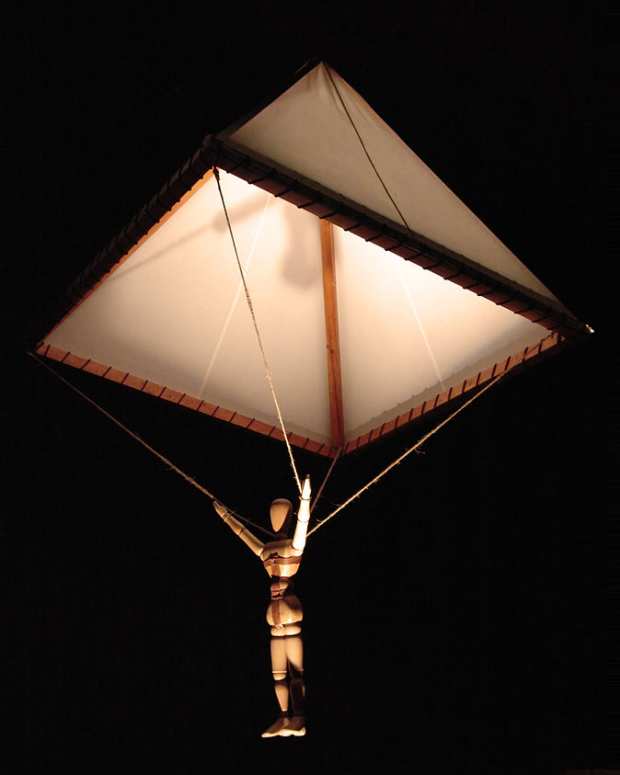Tagalog or Filipino Phrases and Words Translated to English
Tagalog/Filipino Phrases and Words with English Translations
Tagalog is my own language and English is my second language which I learnt at school. Kuwaiti Arabic is also another language that I speak which I learnt during the years I worked in Kuwait. Let me share with you some words or phrases of Tagalog/Filipino language that might help you in your travels to the Philippines. Don't worry if you learn only a word or a phrase or two but I can assure you, this will help you in your communication with the locals especially tourists who are going to my country(Philippines) for the first time. Sometimes if you ask for directions, best places to visit, best cafes or restaurants, or even asking how much you are going to spend on a taxi, a word, phrase or sentence of Tagalog can make a lot of difference. Filipino people are very helpful anyway but if you know some word or phrase of Tagalog language they will even admire you and help you even more. Filipino people connect easily with other nationalities as we are an English speaking country. You will find that most Filipinos speak more than one language especially those OFW's(Overseas Foreign Workers) like me.
It is hard to learn another language but if the desire, interest, and determination is there, it can be achieved.
Without the English Language, I don't know how we can all understand each other. So, I think it is good to learn a new language. I write and speak Tagalog and English fluently. I also speak Kuwaiti Arabic which I learnt when I went to work in Kuwait many years ago.
Let me give you a few phrases or words in Tagalog/Filipino then I will translate it to the English language for you all.
Tagalog/Filipino Phrases and Words or Word — English Meanings(Translations)
- Kumusta/musta! – Hello!/hi!
- Kumusta po kayong lahat? – How are you all?
- Ayos lang po, salamat po – We are fine, thank you.
- Anong pangalan po ninyo? – What is your name?
- Ang pangalan ko po ay si Linda. – My name is Linda.
- Ilang taon po kayo? – How old are you?
- Matanda na po ako.– I am old.
- Saan po kayo nakatira? – Where do you live?
- Ako po ay nakatira sa England. – I live in England.
- Nakatira – live
- Pamilya – family
- lolo – grandfather
- lola – grandmother
- tatay – father
- nanay – mother
- anak – child
- sanggol – baby
- mga anak – children
- kapatid na lalaki – brother
- kapatid na babae – sister
- tiyohin/Tito – uncle
- tiyahin/Tita – auntie
- pamangkin na babae – niece
- pamangkin na lalaki – nephew
- pinsan – cousin
- kamag-anak – relative
- relasyon – relation
- Ako – I or Me
- Ikaw – You
- Sila – They
- Tayo – We
- lalaki – male
- babae – female
- guwapo – handsome
- maganda – beautiful
- pangit – ugly
- bakla – gay
- tomboy/t-bird – lesbian
- sigurado – sure
- singsing – ring
- Mahal kita – I love you
- Mahal din kita – I love you too
- Mahal na mahal kita – I love you very much
- Gusto kita – I like you
- Gusto rin kita – I like you too
- Hindi kita gusto. – I don't like you.
- Mahal mo ba ako? – Do you love me?
- Hindi kita mahal. – I don't love you.
- Kinamumuhian kita. – I hate you.
- Alam ko mahal mo ako. – I know you love me.
- Ano ang gusto mo? – What would you like? or What do you want?
- Kumusta po kayo?– How are you?
- Mabuti po, Salamat po. – Fine, thank you.
- Saan po kayo galing? – Where did you come from?
- Sa Pilipinas po – from the Philippines
- Ako ay Pilipino. – I am a Filipino.
- Sino po sila? – Who are they?
- Mga kaibigan ko po. – They are my friends.
- Bahay – house/home
- Simbahan – church
- Paaralan – school
- Bayan – town
- Siyudad – city
- Kotse – car
- Trabaho – work
- Pagkain – food
- Tubig – water
- Kape – coffee
- Cha'a – tea
- Asukal – sugar
- Gatas – milk
- Tsokolate – chocolate
- Kanin – rice
- Karne – meat
- Gulay – vegetables
- Prutas – fruits
- Kamote – sweet potatoes
- Pechay – pak choi
- Repolyo – cabbage
- Sibuyas – onions
- Kalabasa – squash
- Mani – monkey nuts or peanuts
- Bawang – garlic
- Kabayo – horse
- Manok – chicken
- Baka – cow
- Baboy – pig
- Elepante – elephant
- Matanda – old
- Sisigaw ako – I will shout
- Uuwi na ako – I am going home
- Magandang umaga po – Good morning.
- Magandang hapon po – Good afternoon.
- Magandang gabi po – Good evening or goodnight.
- Magandang araw po sa inyo – Good day to you.
- Saan ka pupunta? – Where are you going?
- Kailan ka pupunta dito? – When are you coming here?
- Kailan ang balik mo sa Hawaii? – When are you going back to Hawaii?
- Magpapaalam ako para sa ating dalawa. – I will say goodbye for both of us.
- Sana ako na lang – let it be me
- Ikaw muna magpadala ng litrato – You send me your photo first
- Kailan ang balik mo? – When are you coming back?
- Magkano ito? – How much is this?
- Isang daan pesos po – one hundred pesos please
- Nasaan ang banyo? – Where is the bathroom, please?
- Nasaan ang kubeta or CR(comfort room) po? – Where is the toilet, please?
- Saan kayo magbabakasyon? – Where are you going on your vacation(holiday)?
- Papunta po kami sa Spain. – We are going to Spain.
- Pupunta sa bayan – Going to town
- Umuulan na at kumikidlat pa – It's raining and there's lightning as well
- Kain na tayo. – Let's eat.
- Anong kakainin natin? – What are we going to eat?
- Kahit na ano basta pagkain – Whatever it is as long as it is food
- Gutom ako. – I am hungry.
- Ako rin – me, too
- Ako ay uhaw na. – I am thirsty now.
- pagod na ako – I am exhausted/I am tired
- Nagtrabaho ako ng walang hinto. – I worked without stopping.
- tuloy tuloy – continuously
- magpahinga muna – have a rest first
- inaantok na ako – I am sleepy (American English), I am tired (here in England)
- Paki gising mo ako sa umaga, ha. – Please wake me up in the morning, okay.
- maraming pagkain – lots of food
- marami – lots/plenty/many
- para sa kabutihan mo – for your own good
- tama ka – you are right
- tama ako – I am right
- mali ako – I am wrong
- Mali ka – you are wrong
- Pasensiya – sorry
- Patawarin mo ako – forgive me
- Galing sa bukid – come from the farm
- Magandang babae – beautiful/pretty girl or woman
- Guwapong lalaki – handsome man
- Bakla – gay
- Tomboy – lesbian
- Anong ginagawa mo? – What are you doing?
- Saan po kayo kakain? – Where are you going to eat?
- Anong kulay? – What color?
- Anong mas gusto mo? – Which one do you like best?
- Itong hawak ko o iyang hawak mo? – The one I am holding or the one you are holding?
- Sige na pili ka. – Come on you choose.
- Paalam – goodbye
- Sa susunod ulit – till next time
You can add Sir or Madam at the end of each questions or sentences if you prefer as a sign of respect. But if you are having a conversation in an informal way, you can omit the "ho" or "po" at the end of your sentences. "Ho" or "Po" are used as a sign of respect to the person you are talking to especially if they are older than you or they are in authority or they are strangers that you don't know.
Filipino people are taught to be respectful to their elders and to guests or to anyone really, that is why you find "po" or "ho" at the end of their questions or sentences. Filipinos are very polite and respectful towards other people. It is the way we are brought up but sometimes we are influenced by other cultures.
We, Filipinos are very resourceful and independent as well and try not to rely too much on others. Sometimes other cultures don't understand that. But hey, that is what makes us who we are and am very proud to be a Filipino.
Tagalog/Filipino Conversations at the Airport with English meanings
Tagalog Phrases or Sentences — English translations
- Anong oras ang alis ninyo? – What time are you leaving?
- Anong eroplano ang sasakyan ninyo? – Which plane are you flying with?
- Kailan ang balik ninyo? – When are you coming back?
- Pupunta kami sa Pilipinas. – We are going to the Philippines.
- Ilang buwan kayo doon? – How many months will you be there?
- Isang buwan lang po – one month only
- Hindi muna ako pupunta diyan. – I won't be going there first.
- Sasalubungin mo ba ako sa airport? – Are you going to meet me at the airport?
- Ilang buwan bago ka pupunta dito? – How many months before you come here?
- Hahanapin kita. – I will find you.
- sa – at the
- Hahanapin kita sa airport – I will find you at the airport
- Hahanapin kita sa mismong airport ninyo – I will look for you at your own airport
- malayo – far/faraway
- Malayo ang airport nila. – Their airport is far.
- malapit – near
- Malapit ang bahay nila sa airport. – Their house is near the airport.
- Ilang oras kayo naghintay? – How many hours have you waited?
- Anong eroplano ang sasakyan ninyo? – What plane are you flying with?
- Dala mo ang pasaporte mo? – Have you got your passport with you?
- Dala mo ba ang ticket mo sa eroplano? – Have you got your plane ticket with you?
- Ikaw mauna – you go first
- Ako ang huling pasahero. – I am the last passenger.
- Matagal kayo rito? – Have you been here, long?
- Nasaan ang CR or kubeta dito? – Where is the toilet or comfort room here?
- Ang layo ng daan – It's a long way/the way is far
- Nasaan ang kapehan dito? – Where is the coffee shop here?
- Anong gusto mo, kape o tsa-a? – Which would you like,coffee or tea?
- Magkano ang binayaran mo sa taxi? – How much did you pay the taxi?
- Kailan ang alis natin? – When are we leaving?
- mamaya pa – a bit later on
- O sige ingat kayo. – Okey, you take care.
- Aalis na kami ngayon. – We are leaving now.
- Salamat – thank you
- babay/paalam – goodbye
- pera – money
- maleta – suitcase
- pasaporte – passport
- mensahe – message
- oras – time
- pagkain – food
- ulan – rain
- walang naiwan – nothing left
- maganda siya – she is beautiful
- gwapo siya – he is handsome
- babae – girl/woman
- lalaki – boy/man
- Malamig ang panahon ngayon. – The weather is cold now.
- Mainit ang panahon ngayon. – The weather is hot now.
Asking for directions in Tagalog language translated to English
Here are a few examples of Tagalog asking for directions then I will translate them to English language.
Tagalog — English
Saan ang malapit na sari sari store? – Where is the nearest shop?
Saan ang istasyon ng bus dito? – Where is the bus station here?
Saan ang airport dito? – Where is the airport here?
Saan ang daan papuntang Baguio City? – Where is the way going to Baguio City?
Saan ang istasyon ng bus papuntang Maynila? – Where is the bus station going to Manila?
Saan kayo pupunta sa baba o sa taas? – Where are you going, down or up?
Saan ang restaurante? – Where is the restaurant?
Saan ang kapehan? – Where is the coffee shop?
Saan ang malapit na simbahan dito? – Where is the nearest church here?
Diretso – straight
Likod – back
Taas – up
Baba – down/below
Kanan – right
Sa kanan – to the right
Kaliwa – left
Sa kaliwa – to the left
Sa harap – In front
Sa likod – At the back
Sa kanan – To the right
Sa kaliwa – To the left
Tagalog Numbers translated to the English Numbers
Tagalog Numbers translated to English
- Isa – one – 1
- Dalawa – two – 2
- Tatlo – three – 3
- Apat – four – 4
- Lima – five – 5
- Anim – six – 6
- Pito – seven – 7
- Walo – eight – 8
- Siyam – nine – 9
- Sampu – ten – 10
- Labing isa – eleven – 11
- Labing dalawa – twelve – 12
- Labing tatlo – thirteen – 13
- Labing apat – fourteen – 14
- Labing lima – fifteen – 15
- Labing anim – sixteen – 16
- Labing pito – seventeen – 17
- Labing walo – eighteen – 18
- Labing siyam – nineteen – 19
- Beinte – twenty – 20
- Beinte ono – twenty one – 21
- Beinte dos – twenty two – 22
- Beinte tres – twenty three – 23
- Beinte kuwatro – twenty four – 24
- Beinte singko – twenty five – 25
- Beinte sais – twenty six – 26
- Beinte siyete – twenty seven – 27
- Beinte otso – twenty eight – 28
- Beinte nuwebe – twenty nine – 29
- Trenta – thirty – 30
- Kuwarenta – forty – 40
- Singkuwenta – fifty – 50
- Saisyienta – sixty – 60
- Shetenta – seventy – 70
- Otsiyenta – eighty – 80
- Nobiyenta ninety – ninety – 90
- Isang daan – one hundred – 100
- Isang libo – one thousand – 1000
This is how we count in Tagalog. So easy to learn this. Why not give it a try. There is more but I can't write all of them. But these are the most important numbers to learn first in Tagalog.
Pangalan ng mga araw sa Tagalog/Filipino --- Names of the days in Tagalog
Ito ang pangalan ng mga araw sa Tagalog/Pilipino. – These are the names of the days in Tagalog/Filipino.
Tagalog — English
- Lunes – Monday
- Martes – Tuesday
- Miyerkules – Wednesday
- Huwebes – Thursday
- Biyernes – Friday
- Sabado – Saturday
- Linggo – Sunday
Mga buwan sa Tagalog - Months in Tagalog with English translations
Ito ang mga pangalan ng buwan sa Tagalog/Pilipino – These are the names of the months in Tagalog/Filipino(with English translations).
Tagalog — English
- Enero – January
- Pebrero – February
- Marso – March
- Abril – April
- Mayo – May
- Hunyo – June
- Hulyo – July
- Agosto – August
- Septiembre – September
- Oktobre – October
- Nobiembre – November
- Disyiembre – December
This is how we call our months in Tagalog/Filipino. I wrote it how we pronounce it. It is easier to learn this way in my opinion.
Learning Tagalog words or phrases can help tourists when you visit the Philippines
I hope that a few of this Tagalog phrases or words might help you when you visit my country(Philippines). It is hard sometimes when you go to other countries where you can not speak and understand the language.
But if you learn even a few Tagalog phrases or words that will get you by, then you won't feel lost. I experienced this before when I worked in Kuwait many years back when I don't know spoken Kuwaiti Arabic, but when I learnt to speak the spoken Kuwaiti Arabic language, I was able to communicate then to anyone. It made communication with the Arabs much easier then. It is challenging but fun learning another language as well. You gain knowledge all the time. It is good to interact with other people from the other countries.
I must admit it was not easy really to learn the English language but because they taught us alongside our own Tagalog language at school, it was better that way for me. I have to learn my own language as well because I speak my own dialect(Kankanaey dialect) but did not know Tagalog then, until I went to school. I learnt both English and Tagalog languages from Primary school to Secondary school. I went to Midwifery College for two years as well and graduated as a Midwife.
Filipinos wherever they go, learn other languages because sometimes other people from other countries don't know how to speak the English language and it is very hard to communicate with them.
Tagalog Words and Phrases translated to English
Tagalog/Filipino words and phrases translated to English
- Articles by Linda Bryen - WanderWisdom - Travel
Articles by Linda Bryen - Basic Spoken Kuwaiti Arabic Phrases and Words Translated to English
Having seen that my first Basic Kuwaiti Arabic language was useful to some readers, I thought of writing more easy basic spoken Kuwaiti Arabic words or phrases translated to English that might help people who are traveling in an Arab country destina - Linda Bryen on HubPages
Hi! my name is Linda, and my interests are languages, writing, gardening, blogging, photography, crocheting, and travelling to new places or other... - Articles by Linda Bryen - Owlcation - Education
Articles by Linda Bryen
Tagalog/Filipino words and phrases with English translations
Philippines
This content reflects the personal opinions of the author. It is accurate and true to the best of the author’s knowledge and should not be substituted for impartial fact or advice in legal, political, or personal matters.
© 2013 Linda Bryen
Tagalog Phrases or Words translated to English
Linda Bryen (author) from United Kingdom on December 03, 2018:
James, thank you for visiting my Hubpages Articles. To answer your question "Marami kasi akong ginagawa mga bagay" it means "I am doing so many things" or "There are so many things I am doing.
Linda Bryen (author) from United Kingdom on December 06, 2015:
Thanks Naty
naty on December 06, 2015:
i will fine you
askformore lm on November 03, 2014:
Salamat
Linda Bryen (author) from United Kingdom on December 15, 2013:
Thank you CrisSp, for your kind comment. I just love learning languages too. I am glad you find it useful.
CrisSp from Sky Is The Limit Adventure on December 15, 2013:
Great, useful hub! I love the beauty of languages and learning a word or two everyday is awesome!
Mabuhay ka!
Linda Bryen (author) from United Kingdom on May 31, 2013:
Hi! Neil Rose, thank you for your interest about my hub. I just want to share my language too. Our language is easy to learn too.
Nell Rose from Buckinghamshire UK on May 31, 2013:
This was amazing, and really interesting. I have been sitting here for ages trying to pronounce the words! lol!
Linda Bryen (author) from United Kingdom on April 25, 2013:
Hi! travmaj, thank you for your lovely comment. I like to share to others my language too, just curious to see the response. I like learning other language too. It is one of my interest. Have you been to my country?
travmaj from australia on April 25, 2013:
Hello - that is some list - and most useful. I'll remember it if I do visit the Philippines again. I found your hub most interesting anyway.


















